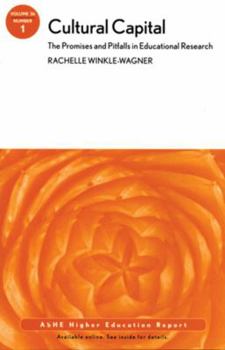Cultural Capital: The Promises and Pitffalls in Education Research: Aehe, Volume 36, Number 1
This monograph extensively reviews the past thirty years of research, investigating the strengths and weaknesses regarding the widely varying uses of cultural capital in educational research. Althougth the concept of cultural capital holds great promise for explaining the perpetuation of power and privilege, unfillled hopes remain. The use of the economic methopher implied by cultural capital, the lack of attention to race annd gender inequalities, the possibility for misunderstanding in transferring the concept between countries and a general implied deficiency model present limitations in many studies of cultural capital. An understanding of cultural capital, if appropiately theorized about and applied to research, has the promise of helping to understand and transofrm educational inequalities.
This is Volume 36 Issue 1 of the Jossey-Bass publication ASHE Higher Education Report. Each monograph in the series is the definitive analysis of a tough higher education problem, based on thorough research of pertinent literature and institutional experiences. Topics are identified by a national survey. Noted practitioners and scholars are then commissioned to write the reports, with experts providing critical reviews of each manuscript before publication.





